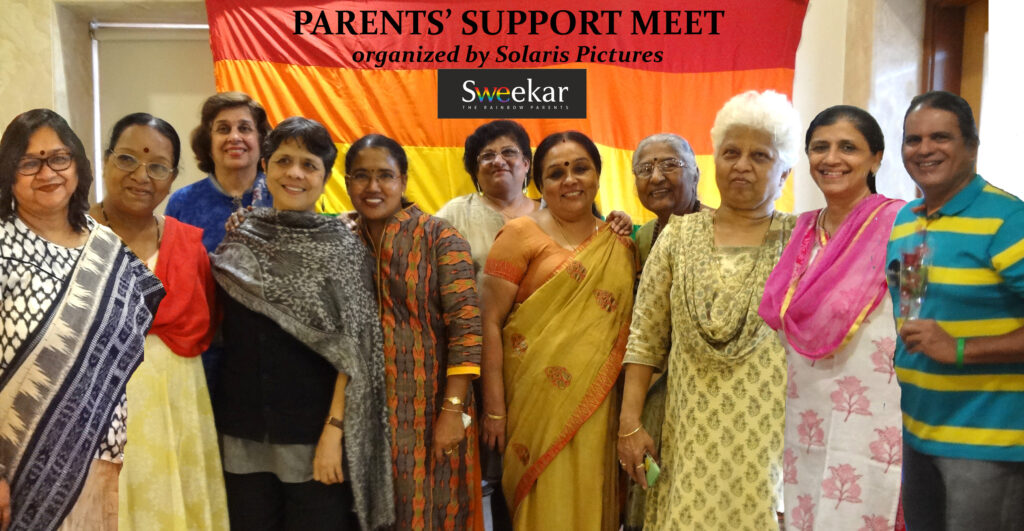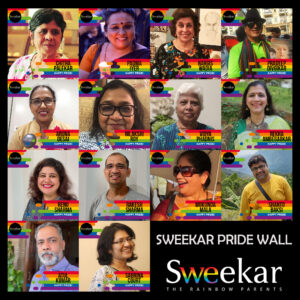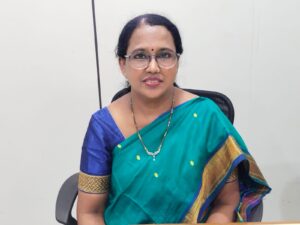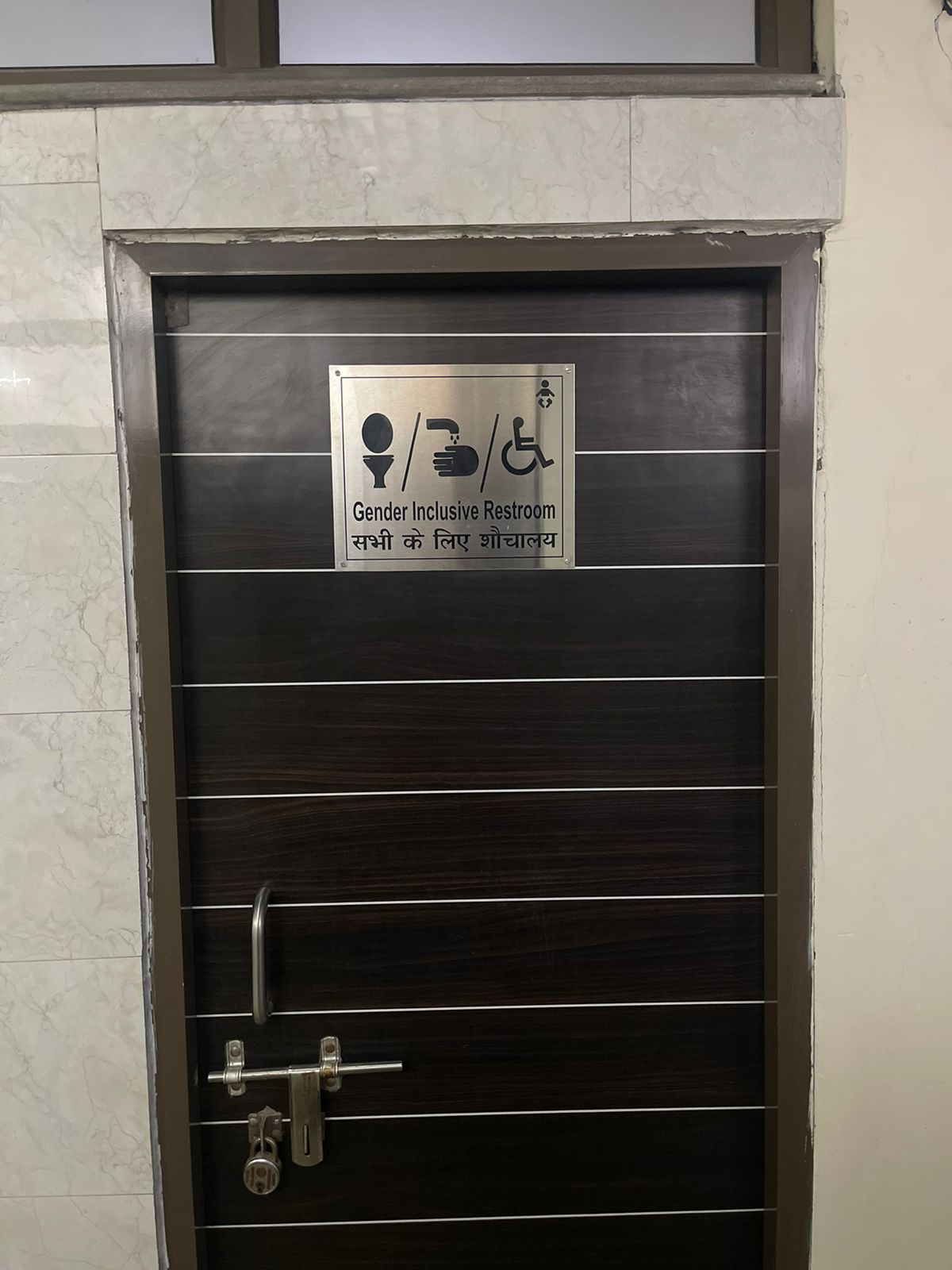
A parents support meet held by Sweekar in 2017.
My name is Aruna Desai. I work as an HR professional. When I was 43, my son, who was then 17, told me that he is gay. Until two weeks before that day, I had no clue what homosexuality meant.
However, Abhishek and his close friend had started preparing me to receive the news. Children do this. They throw little testers to check how their parents will respond to a particular piece of news. Abhishek and his friend made up a story about a friend (imaginary) who had been thrown out of his house by his parents because he was gay, and they couldn’t accept it. Then they told me that their friend was suffering a lot – he was out on the streets, he had no food and was terribly lonely. I was touched by this story and began educating myself about homosexuality. Thus began my journey into my son’s world.
I still remember the date when he came out to me. It was December 3, 2007. He had been crying since morning. It was clear that he wanted to tell me something but couldn’t muster the courage to do so. He was miserable all day long. I was horribly sad to see him so desperate.
Finally, sometime in the evening, I was struck by the realisation. I remembered the story about his friend – the one who had been thrown out by his family because of his sexuality. And I wondered if what he wanted to tell me was along these lines.
So I just decided to ask him, “Are you gay?” To which Abhishek responded, “Mumma, do you hate me now? Will you accept me?” I told him that I love him even more now, and that I fully support him. In that moment I may not have fully understood what this would mean to my life moving forward, what it would mean to be the mother of a gay child. But I knew one thing for sure, he was my child, and I loved him. I remained calm and took him out for dinner, and told him I loved him regardless of what he identified as.
 Thus began my journey as the parent of a gay child. I started reading up online, and Abhishek also gave me a book to help me understand properly what it meant to be part of the LGBTQIA+ community. He then took me to a parents meet organised by a support group called Gay Bombay. Interacting with other parents and their children who belonged to the LGBTQIA+ community helped me a lot. I felt that Abhishek is my child, and we need to accept our children for who they are.
Thus began my journey as the parent of a gay child. I started reading up online, and Abhishek also gave me a book to help me understand properly what it meant to be part of the LGBTQIA+ community. He then took me to a parents meet organised by a support group called Gay Bombay. Interacting with other parents and their children who belonged to the LGBTQIA+ community helped me a lot. I felt that Abhishek is my child, and we need to accept our children for who they are.
Anyway, what is there to accept? Homosexuality is not a disease. It’s a natural orientation. People should be allowed to love who they love. It is really as simple as that. I can’t imagine how parents can throw their children out of their homes when they discover they aren’t heterosexual. I am really shocked to learn that someone can be so cruel to their own children. Being gay in India is hard enough, and without your parents backing you, life is full of hate, suspicion, ridicule and exclusion.

Aruna Desai
I am first a parent and a mother, and then the mother of a gay child. Children are children. They don’t come with tags. Society puts these tags on them. But I would never let anything change the relationship between my son and me. How can I stop loving him just because he loves a man? That’s not how parenting works. That’s not how mothers and fathers should think. I love his friends and everyone else he loves. His world is an extension of him. My son is an adult. He will define who he wishes to call “family”. I am a part of that family for sure and so is my husband.
(Aruna Desai is the one of the founding members of Sweekar – The Rainbow Parents of India, a support group formed in 2017 by and for parents of Indian LGBTQIA+ children.
The main objectives of the group is to: create a safe space for parents of LGBTQIA+ individuals to discuss their anxiety, fears and joys with their peers. It also facilitates peer-to-peer sharing between parents and through external training for accurate scientific information about queer identities, laws, myths, religion, health, rights and the progress of the movement from an intersectional lens. Sweekar aims to create a repository of stories of acceptance and utilise it to empower other parents. It has over 400 members nationally and internationally.
To contact Sweekar, write to: [email protected])



